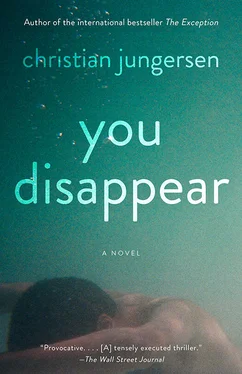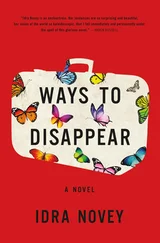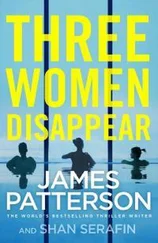Later, when Frederik’s crying has abated, he says, “I really understand if you don’t feel you can ever sleep with me again.”
“Well, let’s just see how—”
“What I did that night was awful. And then Niklas coming in … I don’t know how I could have. I can remember it, but I’ll never be able to explain it to you.”
“No, you won’t. I know.”
“It was terrible. Just like what I did to Saxtorph. That was so awful, wasn’t it.”
We’ve talked a lot about his embezzlement, but this is the first time we’ve talked about the night I had to lock myself in the bathroom.
And it’s the first time he says, “We have no future. We don’t, do we, Mia? The things I’ve done. To you in bed. And the money. And soon I’ll probably go to prison. I just want to die.”
His eyes are huge as he gazes into mine.
“You’ve got to leave me! I’m dragging you down.”
“We’ll talk about it later,” I say.
“ ‘We’ll talk about it later’!” he shouts. “You say, ‘We’ll talk about it later’! But then you have decided to leave, haven’t you! You’re doing it, you’re getting ready to leave me!”
“No, no — I’m not!”
He rolls over on his stomach and hides his face from me. As if he’s only talking to himself, he mutters, “You have to leave me. It’s the only right thing to do. And I can just die.”
“But I don’t want you to die.”
“It couldn’t be any worse than this.”
“Yes it could. You can have a good life. A very good life.”
While I try to dissuade Frederik from killing himself, a fantasy begins to run through my head about what Vibeke will say when he’s well enough for me to leave him. In the fantasy we argue, and she shouts that I’m a self-obsessed egomaniac; that that’s what I’ve been our entire marriage.
No doubt Frederik noticed that I said You can have a good life and not We can have a good life . But he acts as if he didn’t, and I tell him again and again that I’ll stay with him, until maybe he can believe there’s a small chance that that’s what’ll happen.
“You’re right, we should talk about it later,” he says at last. “Now isn’t a good time. Not tonight when we’re moving. I’m sorry.”
“You don’t need to apologize.”
“I’m sorry, sorry, sorry, Mia. Sorry!”
“You couldn’t help it.”
“No, I couldn’t help it.”
We lie there in the darkness, in a spot where once there was a rug, and on top of it a floor lamp and a coffee table.
Many suffer hidden brain damage

One out of every eight people over 45 has a brain injury without realizing it, according to a Dutch study reported in The New England Journal of Medicine . Two thousand healthy subjects took part in the study, in which researchers from Erasmus Medical Center in Rotterdam scanned their brains. The researchers found a surprisingly high number of undetected brain lesions.
The most common form of lesion was what is known as a brain infarct — dead tissue arising from an insufficient supply of blood to the brain cells. Other abnormalities included aneurysms, minor cerebral hemorrhages, and benign tumors.
However, the researchers do not recommend that healthy persons be scanned at the present time. The procedure is quite costly, and doctors cannot treat most of the injuries anyway. (MLJ)
I’m back in our home on Station Road. The colors in the kitchen sparkle like a Christmas tree: the glint of the cabinet handles, the golden stain of the wood shelves, the red and light blue of the plastic bowls. I’m setting the dishes we’ve eaten from back in their places, and the sugar bowl we inherited from Frederik’s grandmother catches my eye, with its chased silver and its blue glass so dark, it’s impossible to see through.
And then suddenly it’s late evening and Niklas is still up, unloading the dishwasher with Frederik and me. We’ve been putting things away and washing the serving dishes and glassware after a dinner with Laust and Anja and some of the others from Saxtorph. The three of us joking around and enjoying ourselves after the guests have left.
Once that was something we did often, having our friends over for dinner. It’s been a long time. I have a vague sense of why we don’t do it anymore; I step over to Frederik and embrace him from behind. I hug him longer and harder than I normally would, resting my head against his back and shoulders.
Niklas looks up at us happily, and it’s obvious that Frederik really enjoys the attention too. He sounds a little shy when he asks, “Now what have I done to deserve this?”
But I don’t know yet. I only feel the warmth, the joy of the three of us together.
Frederik’s tipsy and quite silly now, the way he can get after a party. He says, “Did either of you notice I have an extra willy?”
I lean around him and see a large, oddly shaped bulge in his trousers.
He says, “I got it when I was out peeing.”
Then he takes out of his trousers an empty beer bottle that he must have stuffed down there. He laughs happily; he finds this funny.
We continue taking things out of the dishwasher and putting them away. In the living room, we wipe the tables and set the chairs back in their usual places.
And in the meantime I begin to weep, for I’m slowly analyzing this dream as I dream it. I’m dreaming that I understand why our dinners and parties are now a thing of the past. Why we can never be together again as a family.
I dream that I’m drying off glasses the dishwasher didn’t get completely dry, that I don’t utter a word, that the tears just run down my cheeks. At some point Niklas sees me. He asks what the matter is, and I say, “He’s dead, of course! This isn’t real at all! We’re having such a lovely time, but of course he’s dead. In reality he’s no longer here. Tonight he’s just visiting.”
• • •
The teachers’ break room at my school was furnished in the ’70s. The walls are still covered in burlap, the cot’s still a captain’s bed, and the poster next to the door even depicts a pyramid. Who in the last twenty-five years would even think of buying a pyramid poster? It’s as if the room was simply forgotten by the administration. But it certainly hasn’t been forgotten by amorous colleagues when the annual Christmas party takes place upstairs, or by the odd teacher who seeks refuge here after a bad class. There are so many downward-spiraling fates bound up with this room, so many teachers who failed to get a grip in the months before they were fired or quit, or who did their best to reconcile themselves to a disability pension on psychological grounds.
Since Bernard and I are here every day, now that summer vacation’s begun, I brought in a vase yesterday and a bouquet of flowers I picked by the ditches beside the bike paths. Last week I took thumbtacks and hung up some unused postcards of fine photographs. And in the closet I’ve hidden a locked suitcase with linen and a quilt of our own, so we don’t have to lie directly on the old spread.
Here we lie, naked and still a bit sweaty, Bernard resting his brow against my cheek. And he tells me once again about Lærke.
I doubted before whether he really understood how serious her brain damage was. But he knows. He’s fully aware how little of her remains.
During these past months, he’s described the real Lærke as a remarkably charming and generous woman. Every single weekend, she’d take the family on some new adventure. Treasure hunts in the woods that took as their theme the last cartoon the boys had seen; long songs with lyrics of her own invention; forts they built together of old cardboard boxes for the boys’ toy monsters. I have a hard time believing that anyone could be so relentlessly full of fun and passion for family; it must be an idealized memory. Yet what can I say? Perhaps I do the same thing myself in the way I conceive of the Frederik I once knew.
Читать дальше




![Ally Carter - [Gallagher Girls 01] I'd Tell You I Love You But Then I'd Have to Kill You](/books/262179/ally-carter-gallagher-girls-01-i-d-tell-you-i-lo-thumb.webp)








